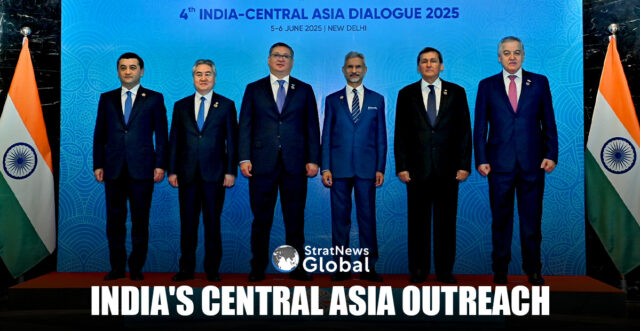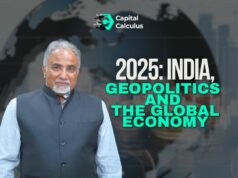Reaffirming India’s long-standing cultural, strategic and economic ties with Central Asia, External Affairs Minister S Jaishankar has called for a significant expansion in the scope of cooperation. Speaking at the fourth India-Central Asia Dialogue, he stressed the need for addressing persistent obstacles in trade and connectivity. Besides, he advocated integrating new areas such as digital technologies, fintech and inter-bank relations into the existing framework.
Jaishankar underlined the centrality of Central Asia in India’s foreign policy, citing both ancient civilisational bonds and recent strategic outreach. “It is our shared vision and recognition of the importance of this partnership that led us to elevate India-Central Asia cooperation to the Leaders’ level in 2022,” he said.
India-Central Asia Business Council
The India-Central Asia Business Council (ICABC), established in 2020, has emerged as a key platform for enhancing economic ties. At its recent session, the Council focused on overcoming barriers to trade and expanding collaboration into high-potential areas.
The minister noted the importance of broadening the Council’s agenda to include cooperation in digital innovation, financial technologies and banking linkages to “realize the full potential of our economic cooperation.”
The ICABC has already identified energy, agriculture, education, IT, infrastructure, pharmaceuticals and textiles as critical drivers of future trade.
India’s trade with Central Asia reached a peak of US $3 billion in 2019-20 but fell to US $1.2 billion in 2024-25. Expanding into new domains is essential to reversing this trend.
Connectivity And Awareness
India has constantly highlighted the lack of overland connectivity and limited awareness among businesses on both sides as major obstacles to stronger trade relations. To address these, India has proposed greater regional integration through initiatives like the International North-South Transport Corridor and the development of Chabahar Port in Iran.
These initiatives can significantly reduce logistical barriers and open new gateways between India and Central Asia.
Strategic And Defence Partnership
Defence cooperation forms a vital pillar of India’s engagement with Central Asia. India holds regular joint military exercises with several countries—‘KazInd’ with Kazakhstan, ‘Khanjar’ with Kyrgyzstan and ‘Dustlik’ with Uzbekistan. In addition, Indian military training teams are deployed in some Central Asian nations, and personnel from the region are trained at India’s premier defence institutions.
This growing defence partnership underscores shared security concerns, including regional stability and counterterrorism efforts.
Capacity Building
India’s development cooperation with Central Asia has been broad and impactful. It has offered over 6,500 training slots under the Indian Technical and Economic Cooperation (ITEC) programme and 1,500 scholarships under the Indian Council for Cultural Relations (ICCR) to professionals and students from the region.
India has also implemented numerous High Impact Community Development Projects (HICDPs), such as the establishment of IT centres, computer labs in 37 schools, modern engineering workshops and a mountain biomedical research facility in Kyrgyzstan. In Tajikistan, India renovated the Varzob-1 hydropower plant, while in Uzbekistan and Turkmenistan, it has supported entrepreneurship and industrial training centres.
“These initiatives reflect India’s role as a reliable development partner and our commitment to inclusive growth in the region,” Jaishankar added.
Forward-Looking Agenda
India’s engagement with Central Asia today spans a wide spectrum—from trade, defence, and energy to education, culture, and innovation. The addition of digital cooperation and fintech reflects a shift towards building a future-ready partnership.
“Our discussions today reaffirm that both India and Central Asia are committed to deeper, stronger and wider cooperation,” Jaishankar concluded. “It is through such sustained dialogue and strategic vision that we can serve the best interests of our peoples.”





